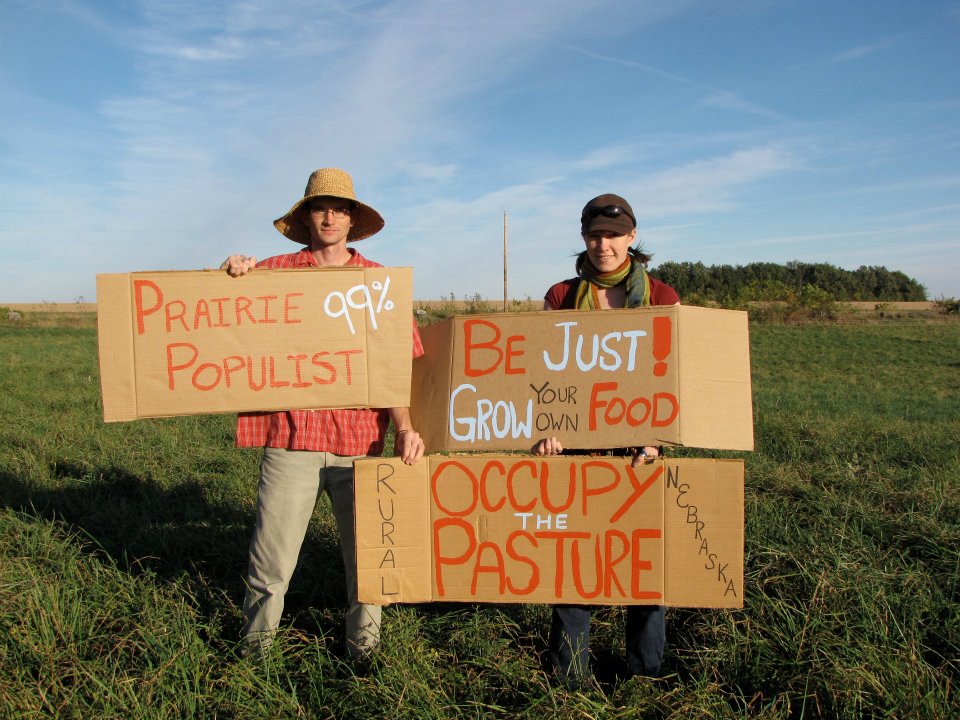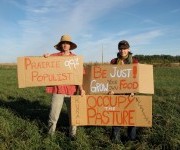 I love a good protest. But in my small town, there are no picket signs lining Main St., and it seems a little wrong to drive 120 miles round trip to attend the nearest Occupy event. After all, oil company profits are part of the reason people are angry. Still, I want to feel connected to this burgeoning political movement.
I love a good protest. But in my small town, there are no picket signs lining Main St., and it seems a little wrong to drive 120 miles round trip to attend the nearest Occupy event. After all, oil company profits are part of the reason people are angry. Still, I want to feel connected to this burgeoning political movement.
There were only two of us — my partner Brian and I — plus our flock of sheep and Arrow the dog. So why did we take the time to carefully mull over messages and paint colorful signs?
One of my top reasons was to remind urban dwellers that there are populists in rural areas. Just like in cities, there are rural people who believe in climate change, progressive taxes, and smarter government. Rural populists can be a monumental political force, as it takes fewer people mobilizing in a rural area to make change.
One of our signs read: “Be Just! Grow your own food!” I picked this message because I believe one fundamental way to rebel against an unjust economic system is to grow my own food. This way, my primary means of sustenance is out of the hands of corporations. Most food sold in grocery stores — even organic food — is owned by a few, very consolidated agribusinesses. Growing your own food undercuts their power.
Growing food is also a terrific entry into the barter economy (where corporations have no power). I’ve traded jam and veggies for a few hours of labor, and we bartered the utility pole that holds our internet receiver for homemade applesauce.
Of course, I don’t grow everything I eat. Flour, for example, takes a lot of work to grind in small batches, and I much prefer someone else to rise at the crack of dawn to milk a cow or goat. For these things, I do my best to shop at small, locally owned businesses to keep my money circulating in the community, and bypass the corporate control that the 99 percent are protesting.
But what about the 80 percent of Americans who live in urban areas? Even a front-yard patch of tomatoes and peppers, a community garden plot, or a pot of herbs on a windowsill can have an impact on their corporate quarterly statements. And you can even use Supplemental Nutrition Assistance Program (SNAP) benefits to buy seeds.
In addition to growing things, we can all make a difference by buying directly from our local farmers. Support farmers markets in your area, and ask your grocers and restaurant owners to source food from local producers. Then keep asking, and encourage your friends to ask too, until those foods start showing up on shelves.
The 99 percent movement has been criticized for not having a specific policy agenda, but I agree with George Lakoff; this is about a lot more than policy. It’s about our collective values as Americans. Growing food, bartering, and supporting local businesses are only a few of the many ways to wrestle power away from corporations and put it back in the hands of the people.
I occupied my pasture. What will you do?




